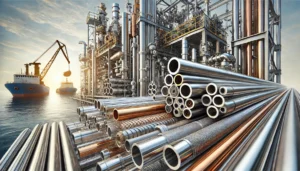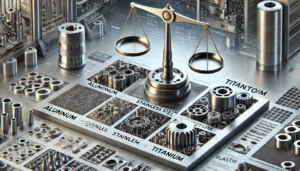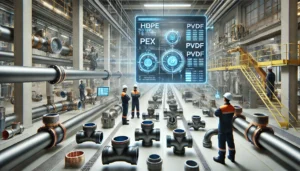The era of modern manufacturing would not be a success without modern sociological tools and techniques, and advanced manufactured parts. These tools are called Precision Machining. I am sure you are aware of the term, ‘Sociological Tools,’ probably your history teacher talked about that while teaching you many things. Certainly from taught literature I am able to infer that a Social Tool is some form of mechanism that enables people to work.” Check out this was found on one online platform as a tool for educational materials. With these tools one can put together parts that require utmost focus and these tools are used in many fields like aerospace, auto motive, electronics, and medical devices.
What is Precision Machining?
A multitude of different approaches and how they are executed borrowed from corporate profits can be termed Precision Machining. Some of the bestselling approaches are turning, milling, grinding, and electric discharge machining. The final goal is obtained when all the iterative relative approach methods provide the required surface feature and its modification.
Significance in Modern Manufacturing
- High-Quality Standards
In places like the aerospace industry and medical equipment manufacturing, compliance with great detail and quality is the utmost precision that has to be adhered to. This makes sure that features work properly in their relative build automatically increasing safety and reliability. Therefore in a much larger enterprise safety is considered important than an incredibly high profit margin.
- Complex Geometries
Innovative shapes and elements are made possible by precision engineering which greatly impacts contemporary design. Made possible by these factors innovation is permitted and the development of new advanced modern devices and products. These features are surprisingly hard to create within bounds set under classical machining.
- Material Versatility
From metals to plastics and composites, precision machining works with an array of materials. This serves as a game changer for industries that require specialized tooling for their specific performance benchmarks.
- Enhanced Efficiency
With high levels of accuracy, precision machining eliminates the need for extensive post-processing and rework. This not only streamlines the production process, but also results in reduced waste and manufacturing expenses.
- Customization and Prototyping
Manufacturers are able to streamline design iterations and small batch productions of specialized components, thanks to the rapid prototyping provided by precision machining. This is especially useful in industries where time to market is crucial.
Applications Across Industries
- Aerospace
Precision machining is critical for the aerospace industry because components must endure extreme environments. The performance and safety of turbine blades, engine components, and structural parts all depend on their precision accuracy.
- Medical Devices
Precision machining is key in the medical sector for implants, instruments, and diagnostic tools. The accuracy of these components is critical to ensure patient safety and effective medical procedures.
- Automotive
The automotive industry relies on precision machining for engine blocks, transmission parts, and other vital components. This guarantees high reliability and solid performance of the vehicles.
- Electronics
Tools like connectors, housings, and heatsinks use precision machining to build components of electronic devices. A high level of precision is needed to accomplish the shrunk versions of current designs and electronics components.
Technological Advancements
Precision machining has been greatly improved with the introduction of technology. Computer numerical control systems (CNC) have improved the accuracy of machining by automating the processes. With the invention of more efficient materials and cutting tools, the scope of precision machining has also improved.
Challenges and Considerations
There are various issues Precision machining faces:
- High Initial Investment
Purchasing and maintaining precision machines poses a high investment cost. However, this investment is often offset by increased efficiency and quality over the product’s life cycle.
- Skilled Workforce Requirement
A highly trained workforce is pivotal in operating precision machines. In order to achieve adequate results from technological advancements, continuous education and training are necessary.
- Material Limitations
Certain traits of materials, such as brittleness or hardness, can make precision machining a hassle despite its versatility. Finding the correct machining method along with tools is essential.
Conclusion
Modern manufacturing is greatly reliant on the accuracy of precision machining, and this enables the creation of complex and detailed components in multiple industries. The ability to meet tight tolerance levels and the possibility of working with different materials and designs makes precision machining a pillar in the constant pursuit of top-of-the-line manufacturing. While industries evolve, the importance of precision machining in enhancing the productivity of manufacturing processes and fulfilling future industry needs will always be significant.









